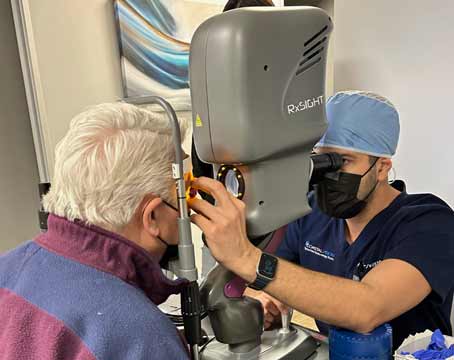Who says the universe doesn’t have a sense of humor ... In mid-summer of this year, the Centers for Medicare and Medicaid Services announced the proposed rule for physician reimbursements (read: cuts) for 2023, while around the same time, the Journal of Cataract and Refractive Surgery published the results of the first ever survey on ophthalmologist burnout. I didn’t say the universe had a GOOD sense of humor; maybe it leans a little too much toward sadistic.
In November, Medicare came out with the final rule on 2023 reimbursement, and it appears that physicians can expect as much as an 8-percent cut in payments, unfortunately. Learning this, I can’t help but wonder if these constant slashes to ophthalmologists’ reimbursement—how society values their services—contribute to the feelings of burnout explored in the JCRS survey.1
The survey found that one of the key factors in burnout cited by ophthalmologists was a perceived lack of control. If this is indeed the case, imagine how disruptive it can be to have a carefully laid-out plan for your practice—you know your costs, your staff, your expected procedure volumes—and then suddenly have as much as an 8-percent decrease in your revenue come down on you like a bolt from the blue. What does that do for your sense of control? Everything you just forecasted and planned has to be tossed out the window. You start to wonder how you'll be able to make up the shortfall.
Even though hospital- and academic-based ophthalmologists reported the highest feelings of burnout on the survey, this type of reimbursement decrease cuts across practice lines, inflicting a sense of loss-of-control on both institutional and private-practice ophthalmologists alike. “The lower rates of burnout among ophthalmologists in private practice suggests that physician autonomy maybe key in reducing burnout symptoms,” the study authors write. However, it’s hard to feel completely autonomous when you can be arbitrarily hit with an 8-percent cut in revenue.
As we’ve discussed before in this space, CMS has to be careful with how much they cut ophthalmologists’ reimbursement, because the joke might ultimately be on them: Some physicians have expressed the potential to drop Medicare reimbursement altogether and go fee-for-service if reimbursements became untenable. In other cases, physicians might choose to transition out of medical practice and into another, more financially stable (“respected”?), line of work relatively easily. Though CMS would have achieved a large cut to its spending on physician services, it would have done so by forcing physicians out of circulation when society needs them most—as the population ages and patients with ocular issues multiply.
— Walter Bethke
Editor in Chief
1. Sedhom JA, Patnaik JL, McCourt EA, et al. Physician burnout in ophthalmology: US Survey. J Cat Ref Surg 2022;48:6:723-729.




